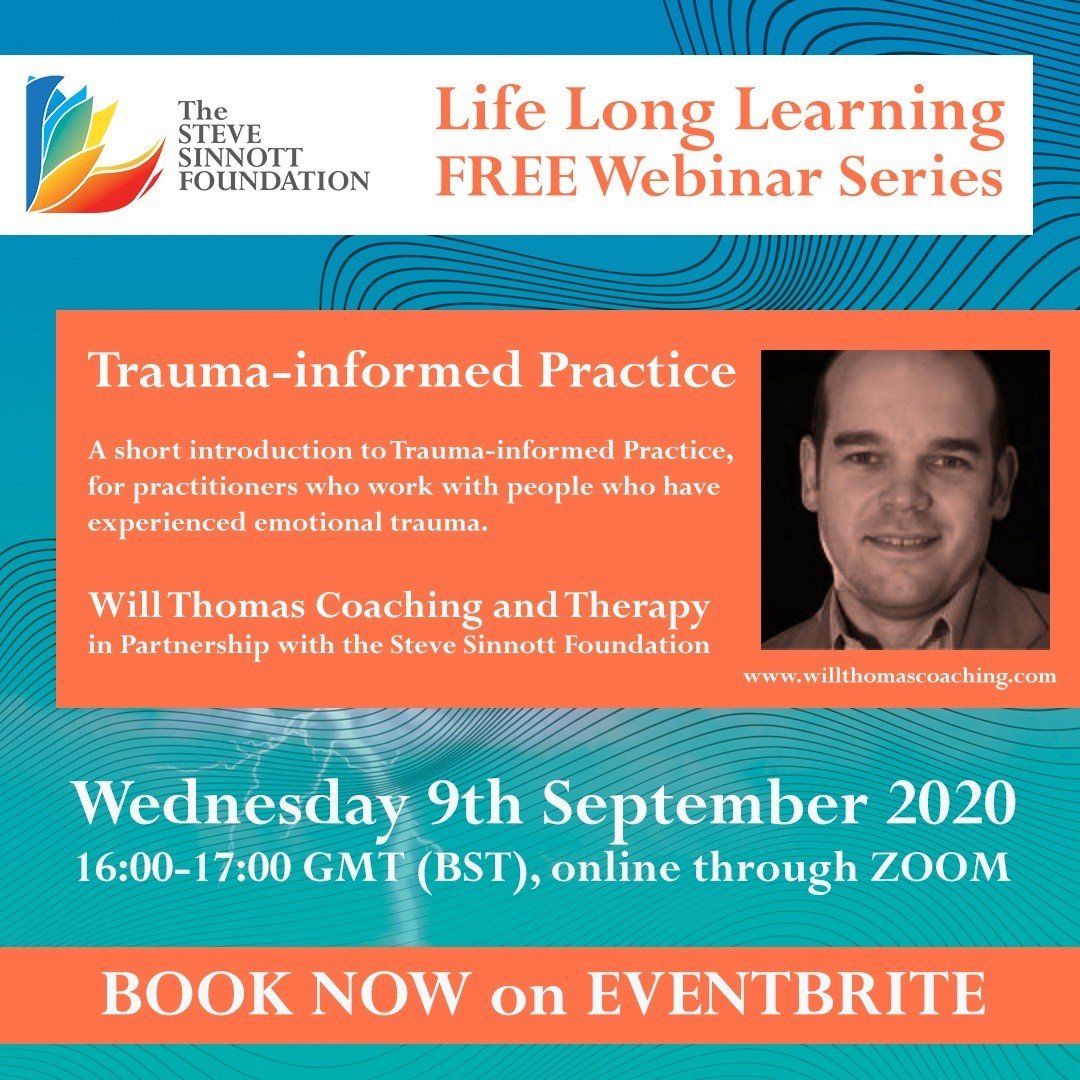Life Long Learning Webinar Series, with Will Thomas
A short introduction to Trauma-informed Practice
Aimed primarily at practitioners who work with people who have experienced emotional trauma, this short introduction covers some of the basics and may also be of benefit to those dealing with personal trauma.
There has been a groundswell of understanding about how the human nervous system responds to abuse, neglect and traumatising experiences, in recent years. The result is a very strong evidence base for understanding how trauma is created and how it can be treated and supported. This short webinar will help you understand something of the nature of trauma, how it can be treated using somatic-psychotherapeutic approaches and what can practically be done in non-clinical settings to support people with trauma.
Register Here:
At the Foundation we have been talking about ways in which we can support each other to cope with this everchanging environment and we have been sharing ideas with our colleagues, partners, parents and students too.
We think this is a timely and important webinar to start off our Life Long Learning Webinar Series and we hope you do too.
In the meantime, here are some articles we hope maybe of interest to you:
Eight ways to help children prepare
Listening grandmothers
I recently followed up a BBC World Service programmme that a friend heard in the middle of the night on 'Listening grandmothers' - very interesting. A bit on the model of the Chinese 'Barefoot Doctor' but less medical, this is a means developed in Zimbabwe to help people with depression who have few alternative sources of help. Amid successive traumas, Zimbabwe's 16m people have only 12 psychiatrists. The scheme is called 'The Friendship Bench', is free, and involves some 400 grandmothers in talk therapy with depressed people. The therapy is 'rooted in evidence-based therapy but equally rooted in indigenous concepts'. Proved to be effective though a randomised controlled trial, the concept is translatable to other settings, and there are Friendship Benches in deprived areas of New York. If you are interested, here is an account of it:
Cultivating Girls resilience by Dr Kathy Weston
Read the article on page 8 of the latest edition of Engage.





